
The Hotel Nikopolis and Da Vinci: Luxury on the Spice Route
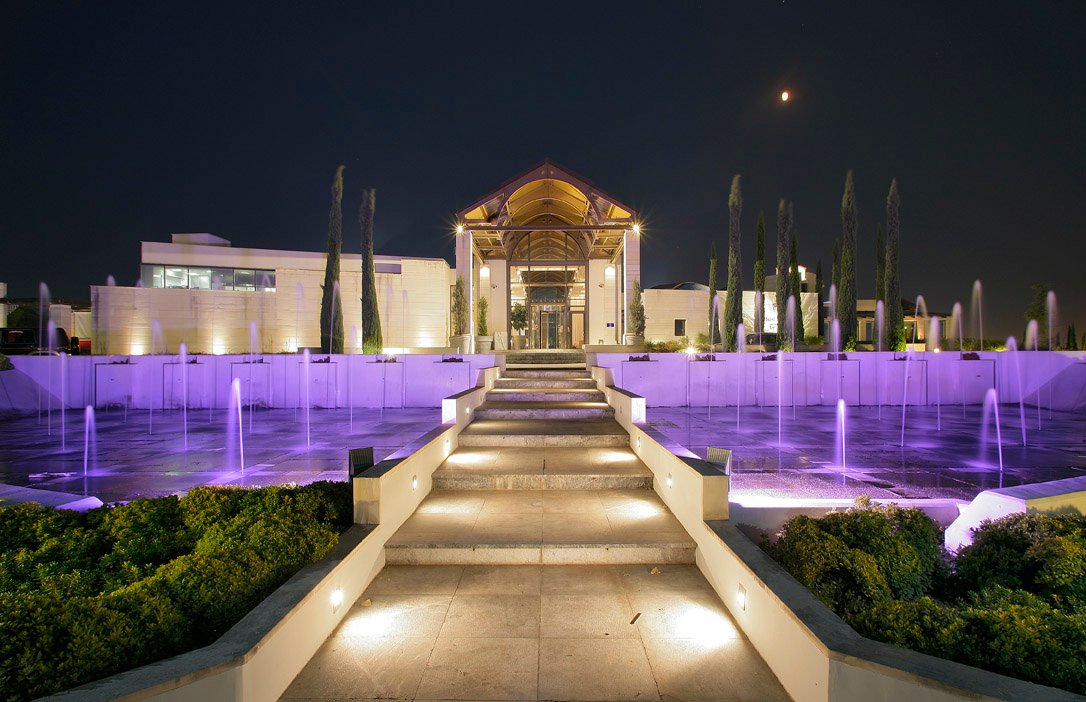
The clear blue water in the immense Hotel Nikopolis pool mirrors the crystal sea of Thessaloniki’s vast harbor. The modern edifice encloses this space on three sides reflecting a reality that the sea is paramount to everything Greek. Frequently luxury hotels are not within two miles of a major airport, but the average North American does not usually find oneself a guest in the exquisite second city of Greece, Thessaloniki.
The strikingly modern Hotel Nikopolis, built in 1999, is reminiscent in its clean lines of the marble and limestone structures of Greek antiquity, encasing ninety-nine rooms with exceedingly comfortable beds, soft linens and peace. Water features both at the entrance and within the hotel soften its linear design. A member of Small Luxury Hotels of the World since 2003, the Nikopolis includes classic Greek touches such as an on site herb garden that flavors both dishes in the restaurant and drinks in the lounges as well as a luxurious full service spa.
The Hotel Nikopolis caters to both business and family. A mere 20-minute drive into Thessaloniki’s historic city center, its clientele tends towards families during the weekend. On weekdays its meeting rooms and 500 seat conference center is a mecca for international companies eager to conduct business in the eastern Mediterranean and southeastern European markets. Yet for this culinary tourism writer, its Da Vinci dining room was a mecca of fine cuisine in Thessaloniki, known as the Greek city of cafes.
Chef Stefanos Stamidis commands the hotel’s handsome Da Vinci dining room. Its Italian name is no conceit. The menu reflects a definite bent towards the cuisine of Italy. A graduate of the prestigious Schuola Albeghierra di Serramazzoni in the northern Italian city of Piacenza, chef Stamidis is not introducing a foreign menu to cosmopolitan Thessaloniki. Historically located at the crossroads of empires, the city has sat at the intersection of the fabled spice route connecting the ancient worlds of the Mediterranean, Near East and the Orient. What makes Thessaloniki a culinary destination is precisely this mix of great cuisines.
Besides serving as the hotel’s main dining room, Da Vinci offers an imaginative multi-course tasting menu that highlights chef Stamidis skill with Italian cuisine while adding Greek flourishes. A series of small plates peaked the appetite and tantalized the eyes. Grilled prawns were nestled under bright crimson sweet red pepper and topped a matching spicy tomato cream with salty feta. A slice of homemade coppa di testa, traditional head cheese, brought the taste of an Italian farmhouse to the elegance of Da Vinci. It was paired with rustic bread, an equally traditional sweet and spicy fruit mustarda and a wedge of mild pan-fried mastelo cheese.
A creamy dish of wild mushroom risotto with asparagus was full of earthy flavor, while homemade pork salami was garnished with wild foraged purslane as well as parsley and watercress on a pool of Caesar dressing. A colorful deconstructed Greek salad was a small art piece, and a basket of breads provided fresh red pepper corn butter and an olive oil butter, plus course sea salt, to enhance all flavors.
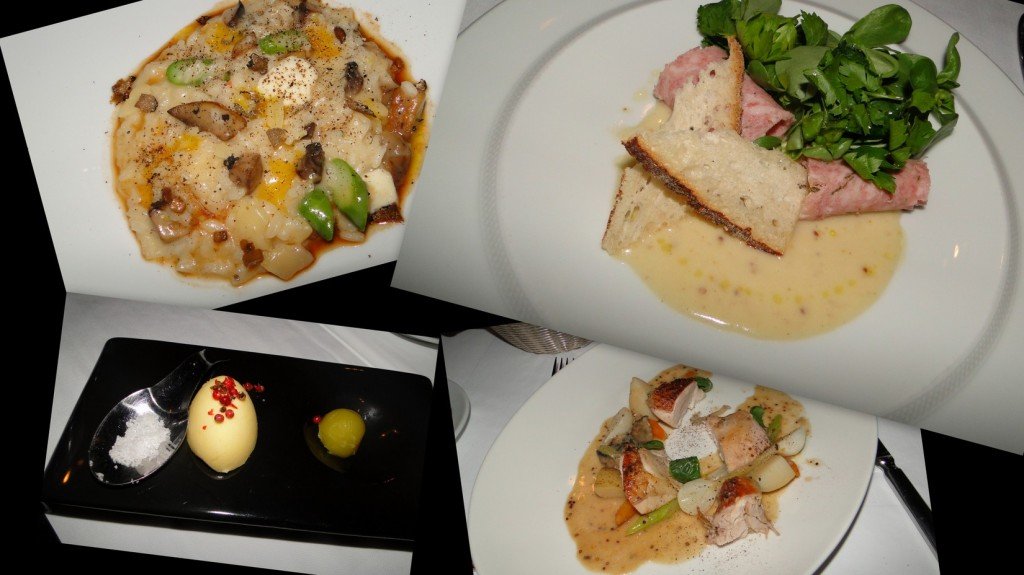
(clockwise) wild mushroom risotto, pork salami, grilled chicken in lemon butter sauce, red peppercorn & olive butters. Photos: © Marc d’Entremont
Continuing with the rustic farmhouse theme of this menu, entrees included soft, light gnocchi with braised ox tail, tongue and local kasseri cheese. Veal ribs were glazed in deep, rich balsamic vinegar on a bed of baby carrots. Cubes of tender roast chicken breast sat in a pool of light lemon-butter sauce garnished with steamed new potatoes and spring onions.
Despite the decidedly Italian bent to the menu, the wine selections chosen by sommelier Vasilios Sereslis were Greek. Considering the quality of Greek wines, their flavor components admirably complimented the dishes. Two wines from the Boutaris family vineyards were particular standouts. A nation’s largest wine producer is not always the best, but over five generations the Boutari Wineries have not only excelled, they continue to push the boundaries of this most ancient of culinary professions.
Patriarch of the Boutaris family, Yiannis Boutaris, founded Kir-Yianni Winery in 1997 specifically to develop a line of premium wines especially utilizing the ancient indigenous xinomavro grape. Temperamental and difficult to tame, this grape variety reaches new heights with Kir-Yianni Ramnista (ΡΑΜΝΙΣΤΑ) – deep, rich in berries with a balanced acidity that especially pairs well with Da Vinci’s meat dishes. From the Boutari Wineries main selections, 4EPOCHES (4ΕΠΟΧΕΣ) is a crisp chardonnay with citrus notes that complimented the grilled prawns, salad and chicken dishes. Since 2011 Yiannis Boutaris has served as the popular liberal mayor of Thessaloniki.
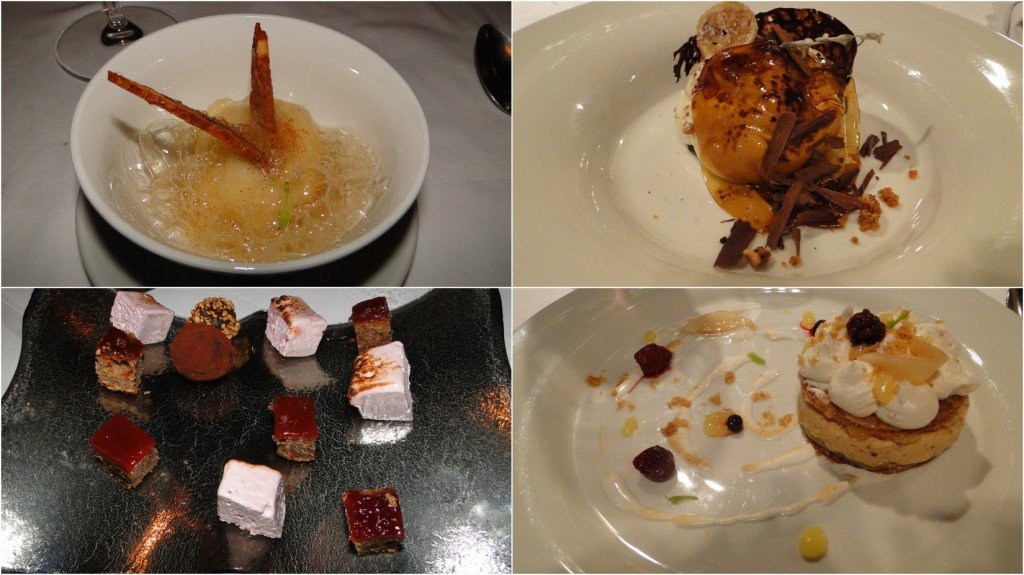
(clockwise) pear sorbet w/ honey foam, tiramisu, almond semifreddo, almond mousse & phyllo assortment of sweet bites Photos: © Marc d’Entremont
Befitting the artistic quality of Da Vinci’s selections, desserts were appropriately intense and brought a smile to your face. A palate cleansing pear sorbet was enrobed in an ethereal bubble of honey foam. Traditional tiramisu rich in coffee and brandy hid a surprise ball of tangy lime sorbet. A light yet rich creation of almond semifreddo, almond mousse, phyllo and fresh berries paired with a syrup made with mastic, a pine sap used since antiquity, was the quintessential fusion of two great civilizations in a dessert.
Whether for business or a family vacation, the Hotel Nikopolis and Da Vinci will tantalize and soothe the most stressed visitor. Yet patrons should not ignore the antiquities, museums and pleasures awaiting them in the city of Thessaloniki. After a day of walking among 2,500 years of culture, it will be an added pleasure returning to the affordable luxury of the Hotel Nikopolis.
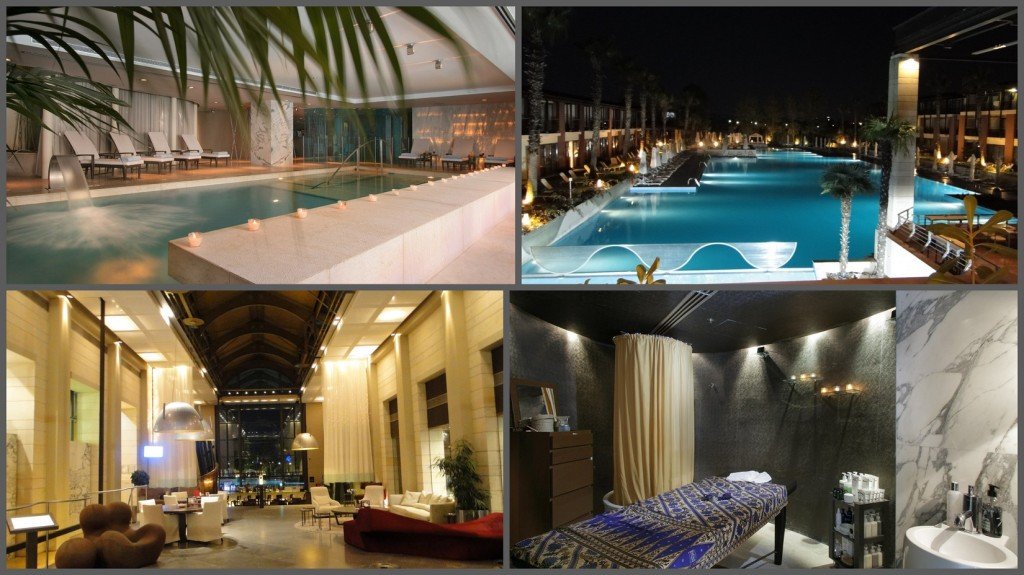
(upper left & lower right) spa. photos courtesy of Hotel Nikopolis. (upper right & lower left) pool &lobby. photos © Marc d’Entremont
Note: the author was a guest of the Hotel Nikopolis and the Thessaloniki Hotels Association






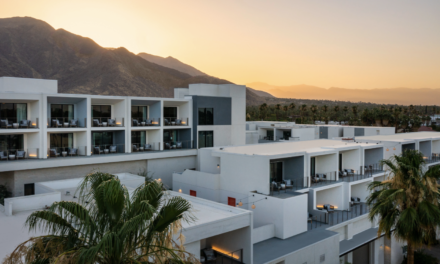



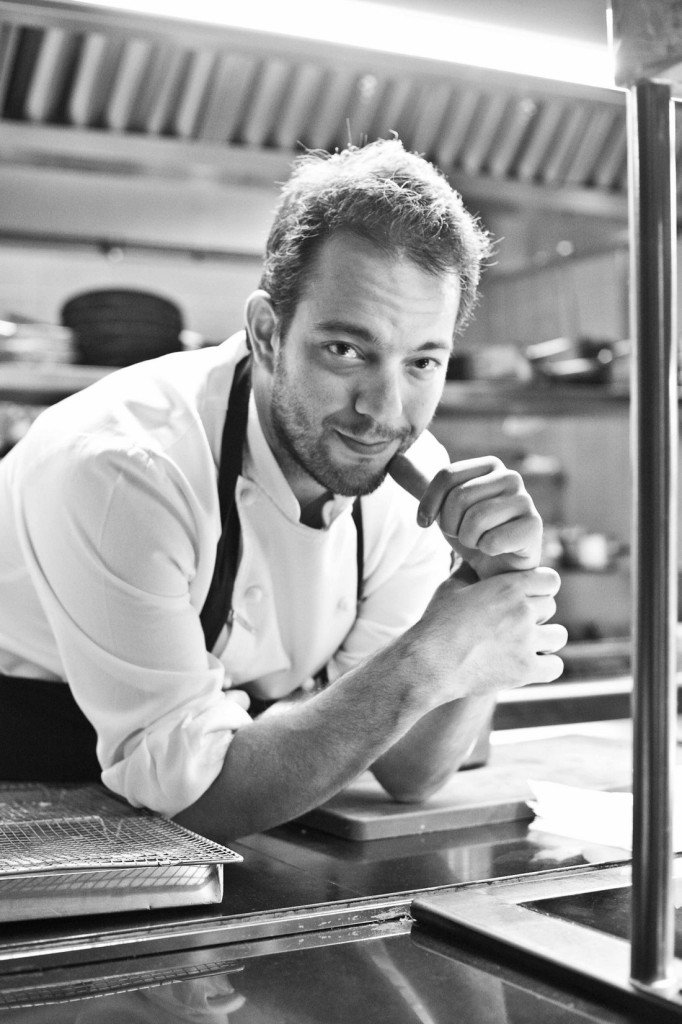
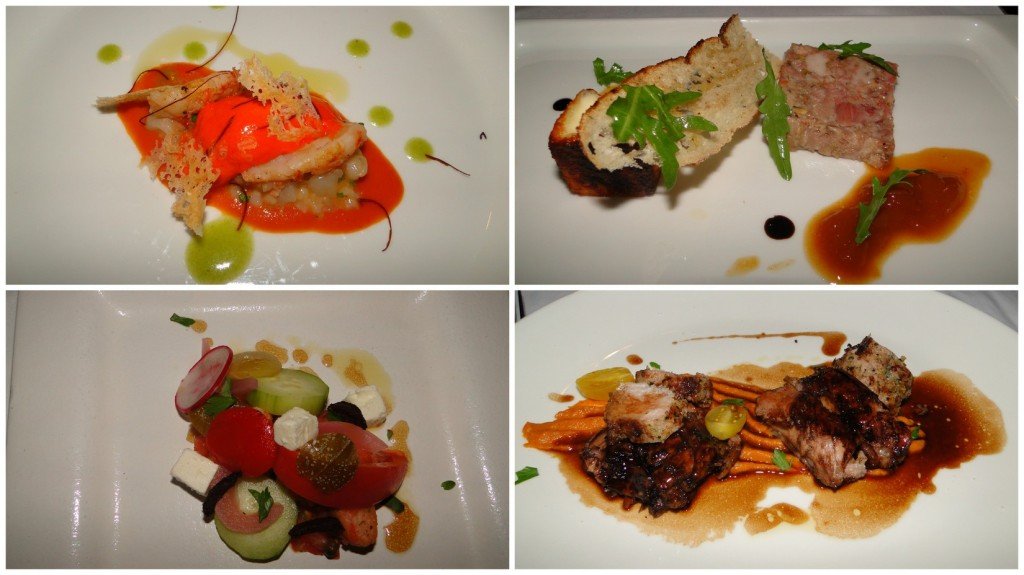



























Trackbacks/Pingbacks